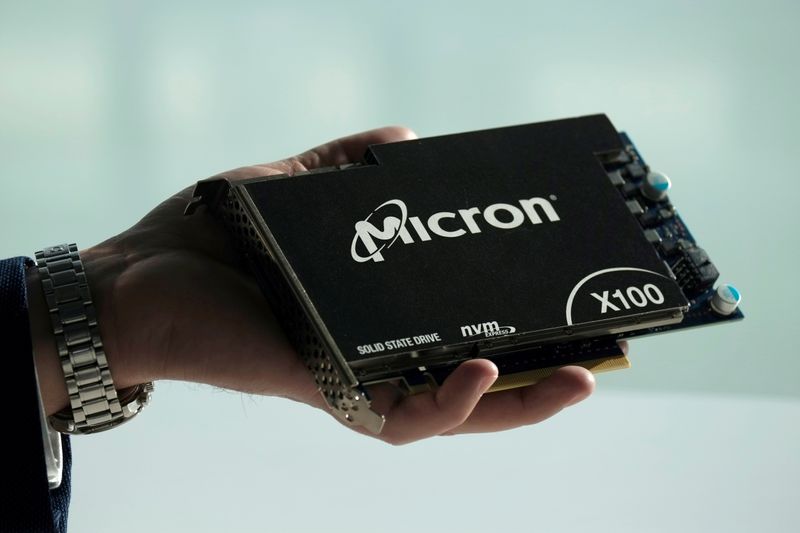This post was originally published on this site
https://i-invdn-com.investing.com/trkd-images/LYNXMPEJ2U0LW_L.jpg
The move is aimed at protecting the security of the supply chain for critical information infrastructure, prevent hidden risks and safeguard national security, the Cyberspace Administration of China said in a brief statement.
It gave no other details, including which Micron products it was reviewing.
Micron, one of the world’s largest memory chip makers, did not respond immediately to a request for comment. Shares in Micron fell 3.3% in pre-market trading after the announcement.
The move comes amid a spat over chip technology between Washington and Beijing.
The United States has imposed a series of export controls on chipmaking technology to China for fear it could be used to produce chips for applications such as artificial intelligence which could be used by China’s military, and blacklisted a number of China’s largest chip firms, including Micron rival Yangtze Memory Technologies Co Ltd.
On Friday, Japan announced it would align its technology trade controls with a U.S. push to curb China’s ability to make advanced chips. The Netherlands, which makes advanced lithography equipment critical for the manufacture of advanced chips, made a similar announcement earlier this month.
Micron makes NAND memory chips that serve the data storage market as well as DRAM chips that are widely used in data centres, personal computers and other devices. It is the only major U.S. manufacturer of DRAM memory, and competes with South Korea’s SK Hynix and Samsung Electronics (OTC:SSNLF) in the product category.
The company has offices in Shanghai and Shenzhen, as well as a chip packaging facility in the city of Xian. In early 2022, the company announced it would shut its DRAM design operations in Shanghai.
In 2018, the U.S. Department of Justice indicted Taiwan-based chip maker United Microelectronics Corp (UMC) and China’s Fujian Jinhua Integrated Circuit Co Ltd, alleging the companies conspired to steal trade secrets from Micron.
Fujian Jinhua denied the allegations. UMC pled guilty to the charges and paid a $60 million fine

